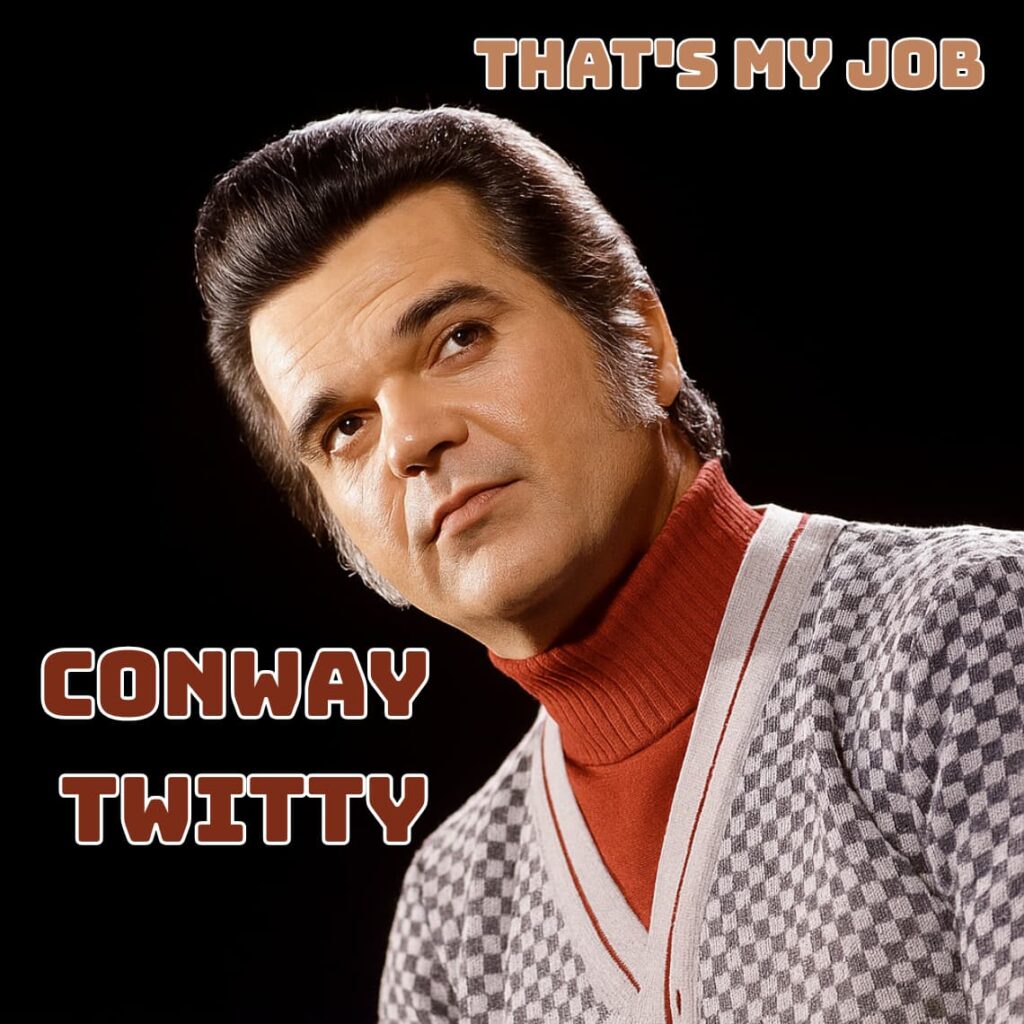
A timeless tribute to the steadfast, unspoken promises of a father, revealed through the eyes of his son.
There are some songs that, no matter how many years pass or how many times you hear them, still manage to reach right into your chest and squeeze your heart. Conway Twitty’s “That’s My Job” is one of those rare and powerful pieces of music. Released in November of 1987 as the third single from his album Borderline, this Gary Burr-penned ballad wasn’t a smash hit in the way some of his earlier work was. It peaked at a respectable, but not chart-topping, #6 on the Billboard Hot Country Singles & Tracks chart and #4 on the Canadian RPM Country Tracks chart. But to focus solely on its chart performance would be a gross disservice to its enduring legacy. The numbers, in this case, are merely footnotes to the profound emotional impact of the song.
“That’s My Job” is a masterful piece of storytelling, a poignant narrative that unfolds across a lifetime. It’s not about grand gestures or loud declarations of love. It’s about the quiet, unwavering presence of a father, seen through the eyes of his son at three different stages of life. The first verse takes us back to childhood, to a young boy, frightened by a dream of his father’s death, seeking comfort in the night. The father’s response, “That’s my job, that’s what I do. Everything I do is because of you, to keep you safe with me,” is a simple, yet monumental promise. It’s the kind of truth that resonates deep in the memory, a foundation of security we might not even consciously recall, but that shapes us just the same.
Then, the song fast-forwards to the tumultuous teenage years, a time of conflict and clashing dreams. The son wants to “fly out west” and chase a different life, while his father urges him toward “knowledge and learning.” This is a familiar struggle for many of us, the generational divide that feels so vast at the time. Yet, even as the son seeks a loan to fund his ambition, he is still “so afraid” of failure. When he asks who will pay his way back home, the answer is the same as before, a steady, unshakeable “That’s my job.” This moment is so powerful because it shows that a father’s love isn’t contingent on his children’s choices; it’s an unconditional safety net, a silent promise to always be there, no matter what.
The final verse is where the full weight of the song hits. The son, now an adult, a writer who “makes his living with words and rhyme,” receives the “tragic news” of his father’s death. It’s a moment of profound, helpless grief. He wonders how he can possibly go on, how he can even find the words to write a song to say “I love you.” The song concludes not with a final answer from the father, but with the son repeating the father’s own words—”That’s my job, that’s what I do.” In this final refrain, the son has not only come to understand the true meaning of his father’s life, but he has also come to embody it. It is a moment of beautiful, heartbreaking realization that the love, the strength, and the responsibility have all been passed down. It is a song that reminds us of the profound truth that our parents’ lessons often echo loudest after they are gone, their legacies living on in the people we become.